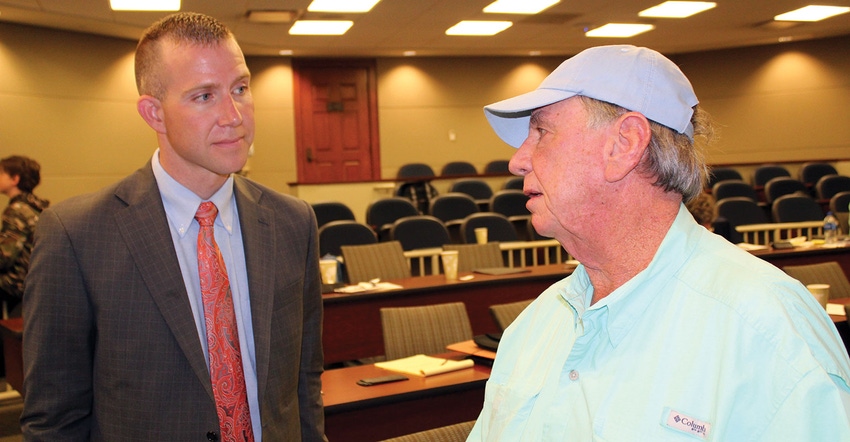June 15, 2018

Greg Cole says he knows of farming operations in the Delta region where the owner started out with nothing and is now worth $40 million. And he knows of situations where someone inherited $40 million and is now worth nothing.
Those are the kinds of dynamics that are driving modern-day agriculture, according to Cole, CEO and president of AgHeritage Farm Credit Services, the farmer-owned lending institution based in Little Rock, Ark.
Speaking at the Mid-South Agricultural and Environmental Law Conference in Memphis, Tenn., Cole said a farmer’s willingness or unwillingness to embrace change can have an impact on the success or failure of his or her operation. (The Conference is a product of the Agricultural & Food Law Consortium.)
“When you go through a rapid shock – think about net farm income being down 50 percent – times have changed,” he said. “Those that have embraced change and made changes are going to do OK. Those that didn’t or were more reluctant to make change are the ones that are challenged.
“I know a philosopher who says change is not necessary if survival is not mandatory,” he noted. “I have lending officers who come back from meetings with farmers and say ‘he’s not willing to change.’ My response is he must not be needing to survive.”
Managements skills are another major determinant of success and failure.
“Our portfolio ($2 billion in agriculture loans in the Mid-South) means we get to see case studies of applied agricultural economics,” he said. “Agriculture is no longer a physically-centered business. When my grandfather was a sharecropper in eastern Arkansas, his income depended on how hard he worked. That is no longer the case.
"A farmer is a CEO, and he or she needs to look at the job description,” he said. “Their total success is just like mine. I’m only as good as the people I surround myself with either to make the decisions or influencing the decisions. And that’s a different skill set.”
Cole said he knows of cases where two siblings with the same parents went to the same university, had similar farming operations and went through the same political and economic environments 20 years later. “Now one is wealthy and the other is broke. The difference is management skills.”
About the Author(s)
You May Also Like






